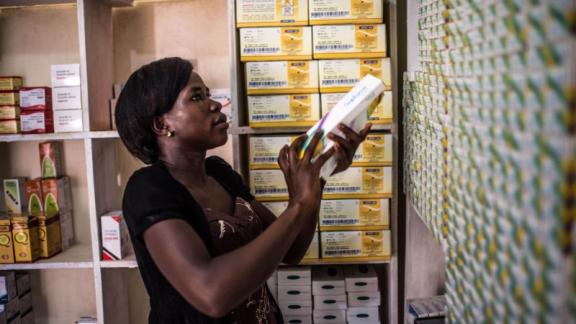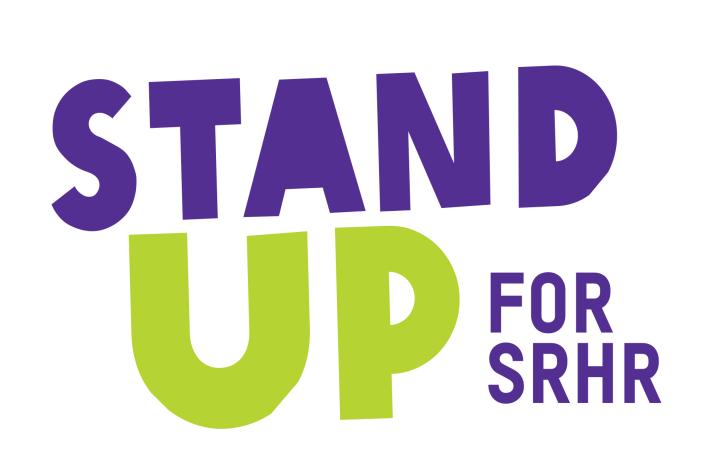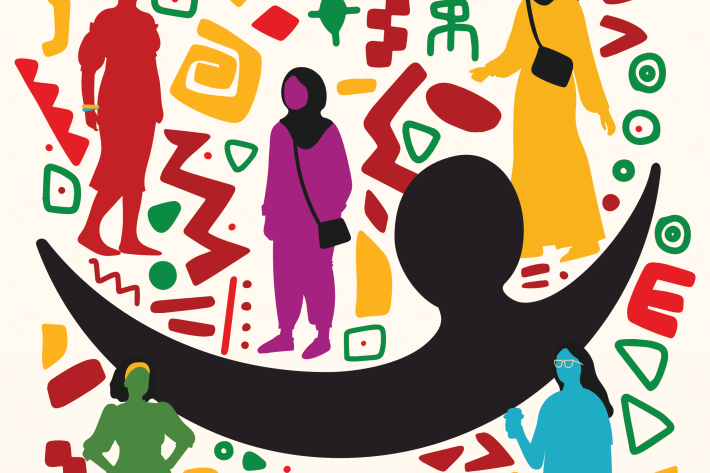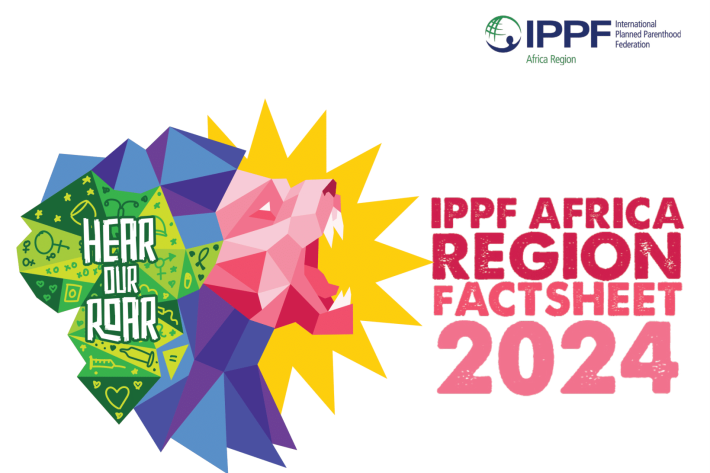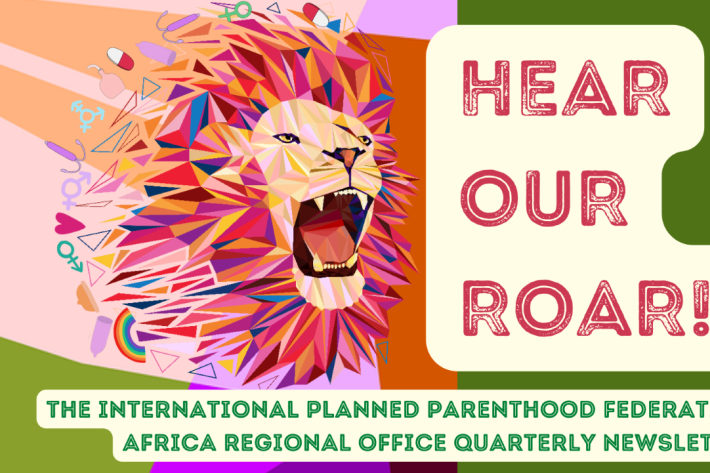Spotlight
A selection of resources from across the Federation
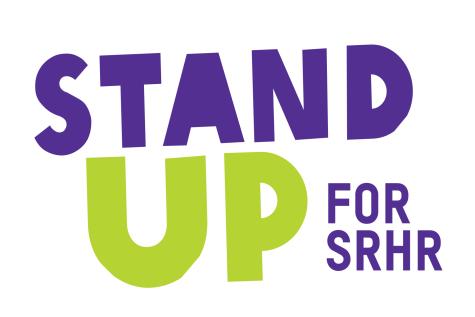
Mozambique, Uganda
Stand Up Factsheet 2025
Healthcare, Rights & Choice: The Stand Up Initiative in Action Imagine a world where every young woman and girl has the power to make informed choices about their sexual and reproductive health. That’s the vision of Stand Up for Sexual and Reproductive Health and Rights (Stand Up)—a groundbreaking 6.5-year initiative driving change in Uganda and Mozambique. Our Impact So Far: 6 service provision clusters established
Filter our resources by:

| 29 January 2017
The Sustainable Development Goals (SDG) brief by IPPF Africa Region
ENGLISH This Sustainable Development Goals (SDG) brief by IPPF Africa Region aims at providing a friendly overview of the SDGs as they relate to Sexual Reproductive Health and Rights (SRHR) and their significance in the context of socio-economic development of sub-Saharan Africa. In particular, this brief focuses on SRHR-related goals and targets, means of implementation (MoI), financing for development, monitoring & evaluation as well as accountability mechanisms. The brief attempts to identify the most obvious gaps and challenges and makes recommendations for IPPFAR Member Associations (MAs) and partners to ensure implementation of the SDGs, and improvement of SRHR at the national level. FRENCH Suite aux efforts et a l’engagement de l’IPPFAR de contribuer à la mise en œuvre des ODD, et d’être redevable, veuillez trouver ci-joint un briefing de l’IPPFAR sur les ODD. Cet expose vise à donner un aperçu facile des ODD lies a la Sante et aux Droits Sexuels et de la Reproduction (SDSR) et leur signification dans le contexte du développement socio-économique de l’Afrique subsaharienne. Ce bre f aperçu est ainsi centré sur les objectifs et les cibles liés à la SDSR, lesmoyens de mise en oeuvre (MdMO), le financement du développement (FdD), le suivi -évaluation (S-E) ainsi qu’aux mécanismes de redevabilité. En outre, ce document tente d’identifier les lacunes et des problèmes les plus évidents dans la formulation du programme de développement durable 2030 et formule des recommandations pour les Associations Membres (AM) et les partenaires de l’IPPFRA pour contribuer a la mise en œuvre des ODD et a améliorer la SDSR au niveau national.

| 10 January 2017
The Fred T. Sai Institute
The Fred T. Sai Institute is one of Africa’s pioneer public health research institutes, championing research on population and sexual reproductive health in Africa. An initiative of IPPF Africa Region, the Institute seeks to generate evidence on effective health strategies aimed at improving the health of the population in sub-Saharan Africa. This it does through supporting innovative research, and whose results provide a basis for the development and implementation of sound sexual reproductive health and rights policies and programs.

| 17 November 2016
Reproductive Health Uganda: reaching the most remote areas
Every Thursday a team from RHU Gulu district provides a mobile outreach clinic in Atega village in the Omoro district in Northern Uganda. The outreach team goes out into this poor remote area which would otherwise not have access to sexual and reproductive health services. The outreach clinic provides a range of services including diagnosis, testing and treatment, family planning such as fitting implants, providing condoms and HPV vaccines. Laboratory technician, Denis Bongonyinge carries out testing for malaria, Hepatitis B, HIV/AIDS, pneumonia and other infections. Other members of the team provide immunisations and vaccinations. Provision of integrated services in such remote areas is vital for the local community; many men, women and children would not be able to receive the types of treatment and care that RHU works diligently to provide.

| 13 October 2016
Keeping Young Ugandans Healthy
The Access, Services and Knowledge (ASK): what young people want, what young people need’ programme targets young people (10-24 years) including underserved groups, with a specific focus on uptake of sexual and reproductive health (SRH) services in the countries of Kenya, Uganda, Ethiopia, Ghana and Senegal. ASK aims to ensure that young people not only receive direct information on sexual and reproductive health and rights so that they can make independent informed decisions. The ASK programme is a joint effort by 7 organisations: IPPF Rutgers WPF, Simavi, Amref Flying Doctors, Choice, dance4life and Stop Aids Now! Child Helpline International is engaged in the programme as a technical partner.

| 13 October 2016
Ensuring people can get the contraception they want
"We capture the data directly into this app. It maps out what the demand will be and ensures that we never run out of those supplies." Planned Parenthood Federation of Nigeria (PPFN)'s Monitoring and Evaluation Officer, Babatunde, is responsible for ensuring the supply of contraceptives for all the cluster facilities. "My job entails the use of a mobile app built for direct data information capture (DDIC). I created an account for each of the 10 facilities that were under the Clusterplus Model. ClusterPLUS is something of a hybrid. It was built on the foundation of PPFN’s previous work but added new thinking, including ideas developed by IPPF member associations in Kenya and Uganda, who helped PPFN adapt them for Nigeria. At its heart is a simple concept - partnership. The closer you can get to local communities, the better you work with national and local government and more you try to build local ownership, the better. "Before I stock up their store, I audit their supplies and can review their monthly report via the app. I put this into the mobile app as well as the commodities I have supplied them. Every two months, the app forecasts what a particular facility will need based on the contraceptive demand,” says Babatunde. "I provided training on the mobile app for the store keepers at the facilities we worked with. All through the nine months of the Clusterplus Project, no facility ever ran out. This meant family planning methods were always available to those that needed them.” Babatunde has developed a wealth of knowledge about family planning and the many methods available. Clients favoured long-acting methods Implanol and the IUCD.

| 05 October 2016
A Bright Future: Lanterns for Women's Empowerment
Women’s empowerment is key to ensuring their health and well-being. A partnership between public, private and civil society found a unique way to address health and gender inequalities in one of the most disadvantageous communities in the Northern regions of Ghana. This pilot project introduced solar lanterns, health and economic interventions to 20 villages. The project was effective because it brought together Japan’s ODA, private sector technology and IPPF’s community-based activities to challenge structural barriers and harmful gender norms. In doing so, we have done more than bring ‘light’ where there was once ‘darkness’. This intervention has transformed the lives of women, their families and their community.








